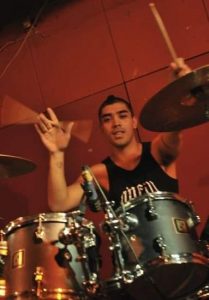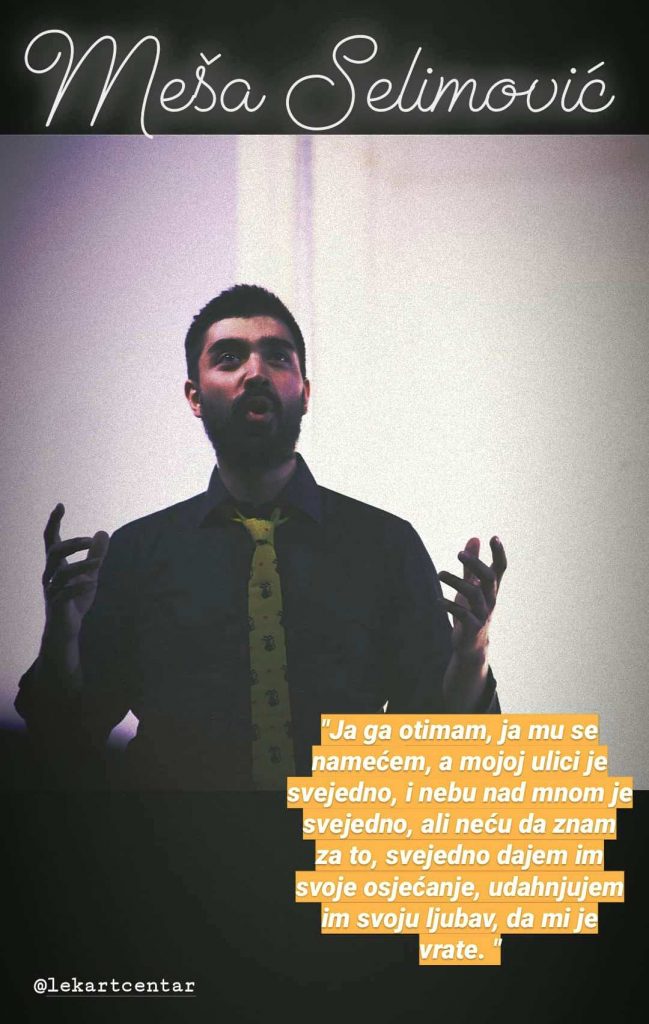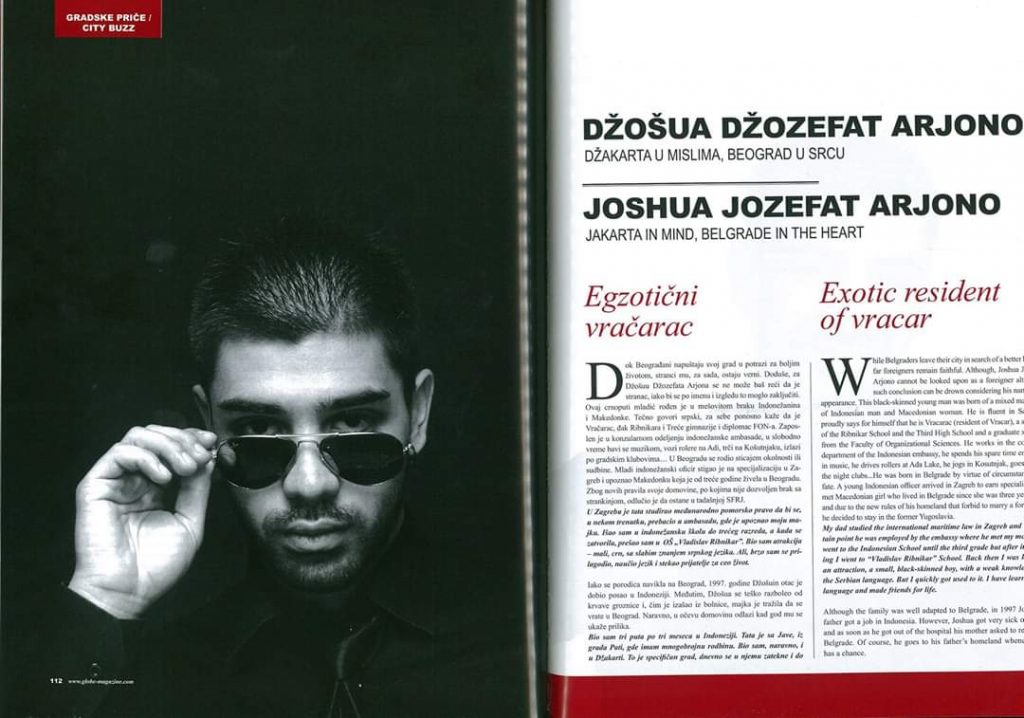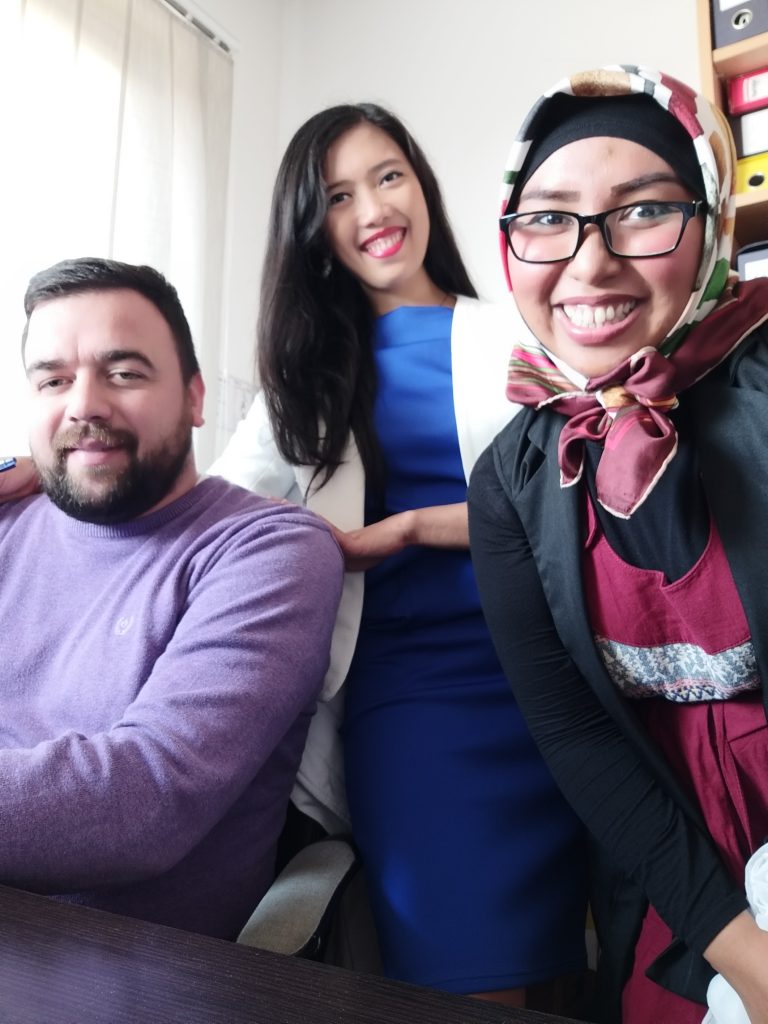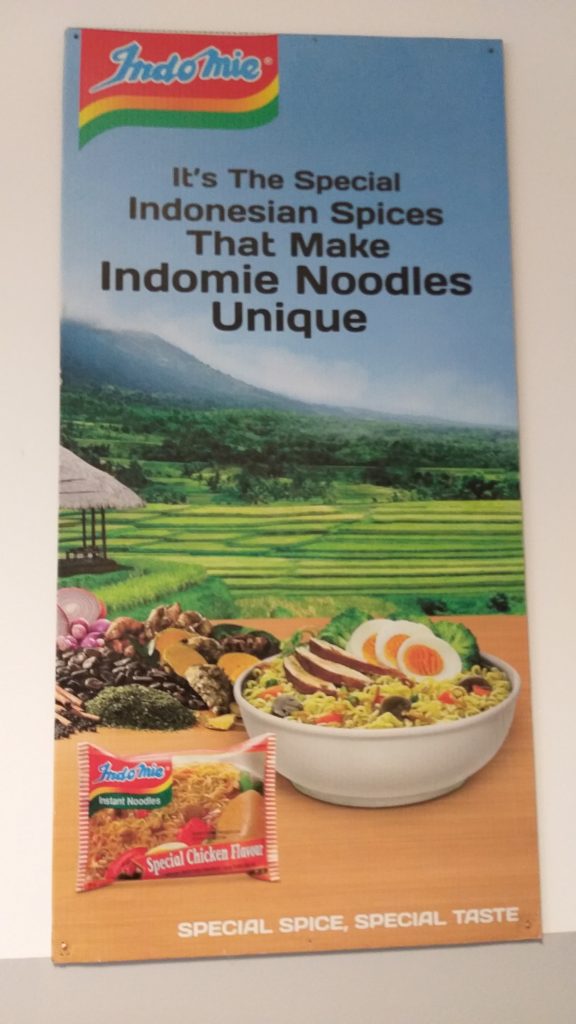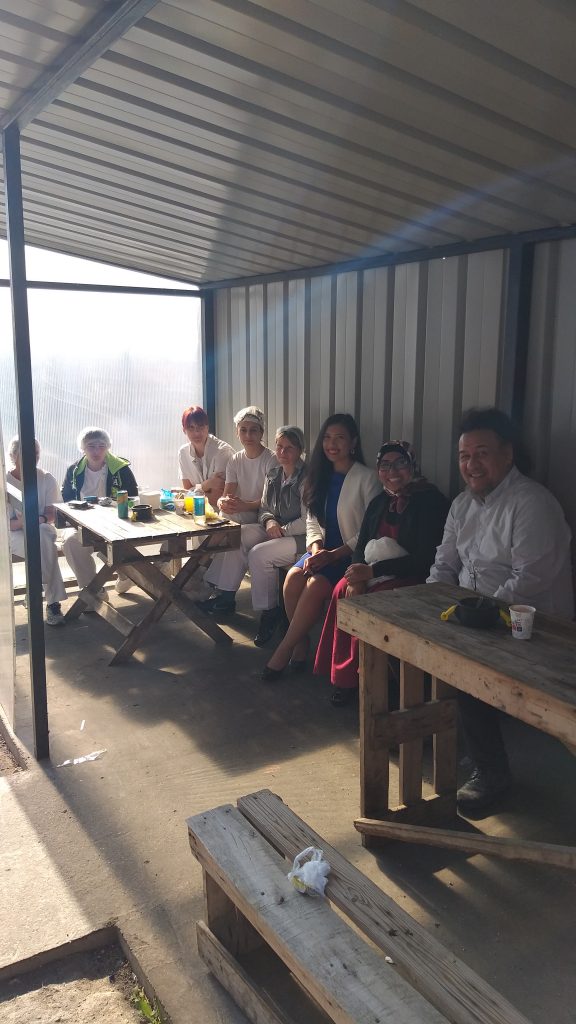By: Sabriana Jayaputri*
A winding process indeed leads to the core of success. Sometimes, the immense pressure stifles the spirit. However, bear in mind that not one single great sailor was made from a calm sea. Great people who are mentally strong are indeed shaped and forged by strenuous lives. It reminded me of a philosophy on date palm trees. The process of growing the date palm tree begins not from its buds but the roots. The roots grow to tens of meters below ground level until they find water. Via this long process, the trees become strong regardless of them growing in a barren desert or extreme weather. After the date palm tree becomes strong, the buds begin to grow and only then produce sweet dates. In this regard, I feel honoured to narrate “the Indonesian date palm trees” who put their legacies, which has magnified Indonesia in the Balkan peninsula. Introducing our homeland’s culture, language, and cuisine in the grassroots are just few examples. They really introduced Indonesia constantly by their own way albeit they are far from the spotlight in which they should be. I perceive those people who mingled with locals and speak their language, who has a good grasp of the mentality of different cultures and simultaneously enhancing their nationalism as high quality people who need to be highlighted even more.
Personally, it’s an honour to narrate about Mr. Joseph Victorianus Arjono in the first part as one of date palm trees in Serbia. Meritorious for decades, his services for Indonesia are irreplaceable. Having perceived his figure, it’s equal as I perceive a comprehensive package of knowledge. His emotional and spiritual intelligence are clearly not in doubt. Being a translator, especially regarding the history of bilateral relations between Indonesia and Serbia, combined with his firm figure make Mr. Arjono as an inspiring person. He was also in the Indonesian armed forces (Indonesian navy) and – an honour – he is my professional dissertation advisor. Speaking with him for hours, I learned more about the philosophy of life that elevates the values of wisdom and the high quality of knowledge beyond paper value. Mr. Arjono was an Indonesian student who graduated from the University of Zagreb, faculty of Law, magisterium in the International Maritime Law during Yugoslavia era. As a young captain of the Indonesian Navy, he joined the Yugoslav Navy for a short training and course in the field of port security and authority. He spent many years as a legal officer to the Indonesian Naval Supply Mission for Europe based in Belgrade and then spent his service at the Indonesian Embassy in Belgrade. In addition to his profession as an expert of international maritime law, he is also a connoisseur of the Yugoslav and Serbian history. His attention to the problem of the law of the sea is channeled in some of his writings in maritime magazines in Indonesia such as “Transportation of dangerous goods at sea”, “The issue of sinking of M.V. IRIAN” and “The international legal status of the seabed of High Sea and its demilitarization”. His scientific work gave birth to the writings of “General average according to the York-Antwerp Rules -Lex Rhodia de iactu” (master’s thesis) and “Innocent passage of foreign ships in the Indonesian archipelagic waters according to the UN Convention on the Law of the Sea 1982.”

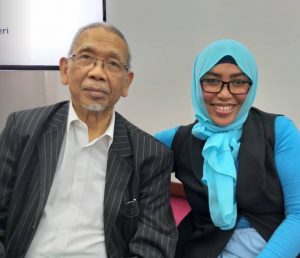
His dedication to the history of Serbia has also produced some writings, namely “A constitutional review of the Yugoslav Constitution 1974 and its influence to the breakup of Yugoslavia”, “The Kosovo-issue a retrospective review” and “The first Indonesia-Serbia bilateral Interfaith dialogue” and some articles in preparation: “Towards 70 years of bilateral relations between Indonesia and Serbia”, “The sea lanes through the Indonesian waters and their influence on regional security in Southeast Asia” and “Mutual understanding as a driving factor for the improvement of bilateral economic cooperation between Indonesia and Serbia”. Besides his busy schedule, he also taught at the Indonesian School in Belgrade for subjects: Citizenship, Sociology and German language. As a result of his merit and broad insight, he is often asked for advice and to share his knowledge. With his boundless experience, Mr. Arjono is still known as a kind-hearted person who often shares various types of knowledge with anyone. He became one of the most reliable persons responsible for various bridges in high-level meetings between Indonesia and Serbia.
Furthermore, the heritage of Indonesian traditional dances seems interesting enough to attract many foreigners to learn it. Local people are interested in seeing Indonesian culture, enjoying Indonesian cuisine and there are even students from Serbia who learned Indonesian traditional dances. Meanwhile i have to say hats off to the Indonesian who learned it even more while living in this Balkan country. Mahaini Menik for instance. She used to be called just Menik. She has been studying Indonesian dances since elementary school in Indonesia. For many years living overseas, she continued to pursue her hobby of dancing. She is a mother with one child and she could be called as Kartini of Indonesia who carves many achievements in Serbia and other countries. Her expertise in dancing and local language has made her rich in experience. Menik joined one of the Indonesian dance groups named the Citra Indonesia. She has participated in many good dance festivals in Serbia and shows the beauty of Indonesian traditional clothes in front of hundreds of guests from state officials to the local community. She is an Indonesian who appears in the midst of the Serbian community who are also interested in exploring Indonesian dance. The dances that she has performed include Balinese Dance such as Panji Semirang, Pendet and Rejang Dewa; East Javanese dance (Jejer Dawuk); West Javanese dance (Jaipong); dance from West Sumatra such as Rebana, Piring, Pasambahan and several others which she mastered. Cultural festivals in which she has participated include most festivals held in various cities in Serbia such as Belgrade, Novi Sad, Leskovac, Zaječar, Pirot, Subotica and Sombor. She has even went to Montengero in the Tourism Exhibition in Budva in 2016. In addition, she is also good at playing angklung and singing. I gained valuable experience when I got the opportunity to sing with her accompanying the Saman dance at a cultural event at the Serbian National Theater.
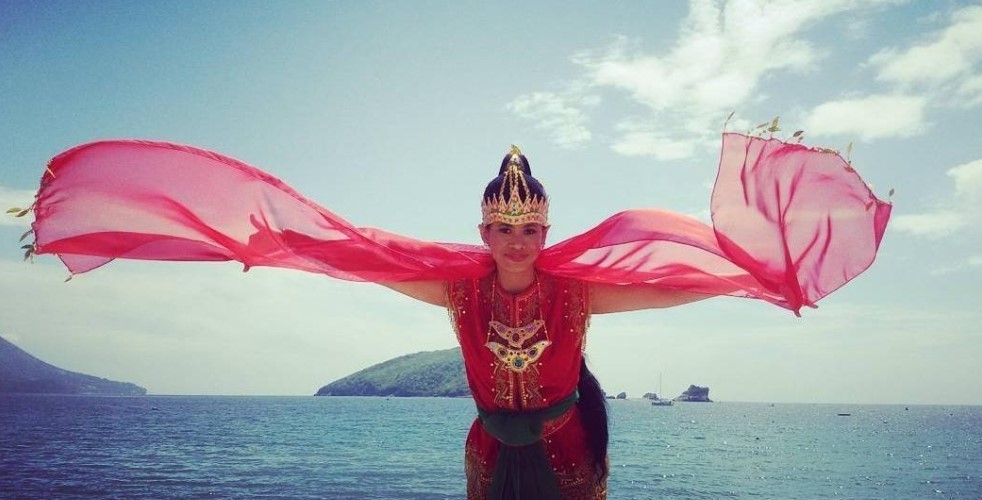
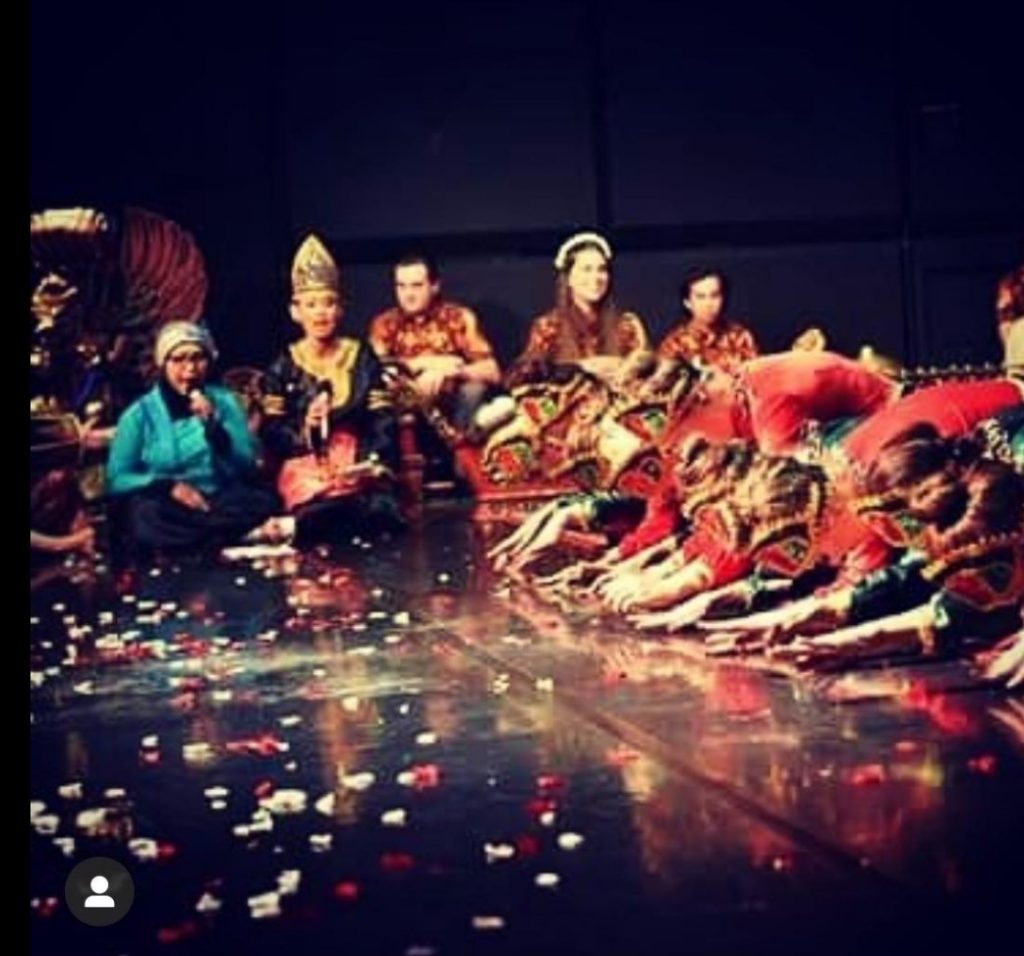
Saman dance at a cultural event at the Serbian National Theater 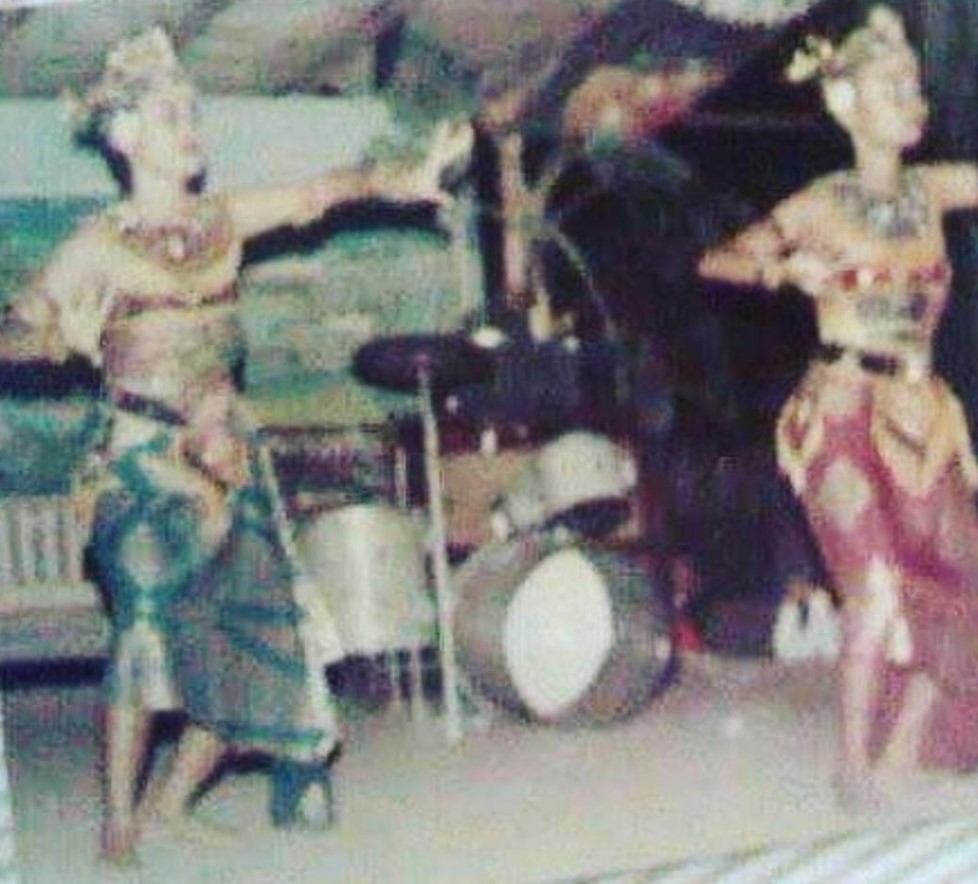
Menik danced Panji Semirang
Moreover, there is also a young man who was born and grew up in Serbia but remained an Indonesian citizen. Joshua Josaphat Arjono is his name. His high musical potential has enabled him to be the Indonesian music player at one of the biggest music festivals in Europe called Exit. Joshua also became the only Indonesian who also did theater in Serbia. One of the theatre dramas he has ever participated in is The Seagull by the great Russian writer – Anton Pavlovich Chekov. Joshua is also listed as one of the band performers who appeared in the Global Battle of the Bands (GBoB) at Studentski Kulturni Centar, Serbia. GBoB itself is a music competition participated by all bands from various countries. Several times as an advertisement and movie star abroad, Joshua remains a representation of Indonesia’s pride. Not only that, he also often became a person who was very reliable in becoming a translator and also became a bridge in a variety of works related between the Serbs and Indonesian. With his intelligence, musical experience and wide range of associations, Joshua deserves to be the proud son of the nation.
Joshua Josaphat Arjono
Furthermore, in the culinary world, there was an Indonesian woman who worked in the Indomie factory and often does promotions. Her named is Gisella Galla. Previously, Gisella’s husband had walked from the beginning of Indomie’s start in Serbia in 2010. Only 3 years later Gisella joined in the development of the Indomie market of this former Yugoslavian country. Her career began as Sales Marketing, then became the Logistics Purchasing section until now trusted as Supervisor of Finance and Accounting. For almost 8 years, Gisella has worked with other local Serb communities. Her attempts and team to promote Indomie were successful; from starting Indomie’s cooking demo in her early days, working and explaining to the Serbian people about this Indonesian pride product. The Indomie factory also has good cooperation with the Association of Indonesian Students in Serbia (KERIS) for cooking demos in one of KERIS’ events – Indonesian Festival. I had the opportunity to visit the Indomie factory and was guided directly to see the noodle production process. During my interview with her at the time, Gisella explained that in 2013, Indomie was not yet a very familiar product for the Serbs but the Indomie team in Serbia (including her) were very enthusiastic to promote this product consistently until it attained its current fame. She was elated upon knowing that local residents found out that Indomie is an Indonesian food product and they were very fond of eating it. For her, there are so many benefits as well as the valuable advantages of working with Serbs. Such advantages increased insight and learning to adapt to a variety of people from different languages and cultures. This of course adds a new perspective that can only be carried out with experience in the field and Gisella has proven that she is a very adaptive person and carries the name of Indonesia very well particularly in the culinary field.
Furthermore, in perceiving myself as an Indonesian student overseas, i believe that my duty is not always just to dwell on learning, hanging out and traveling. More than just these things, there is an invisible part that comes in a variety of ways to every human being which is the guidance of God to struggle and work even more in the face of great challenges. Indonesian students in Serbia who are also members of KERIS also have their own unique record of introducing Indonesia more. Promoting Indonesian specialties at every opportunity and even giving Indonesian lessons to the Serbian people are just a few ways. There is no instant way in this world for achieving high quality values. Serbian language itself is one of the Slav languages which has a complex grammatical structure. It takes time to achieve fluency in this language. It’s my opinion- that an appreciation should be pinned to every individual who has made a significant contribution to their country albeit they are thousands of miles away from the beloved homeland. Learning from elders such as Mr. Arjono, Indonesian Kartini such as Menik and Gisella and young people like Joshua and Indonesian students overseas have made the horizons of thinking in deeper understanding through the winding and long process. There are uncountable challenges to produce even for one single legacy. Every human being who carves works in a variety of ways and realms and has fostered a timeless legacy. The legacy finally illustrates a human process like a palm tree with strong roots even in extreme weather.
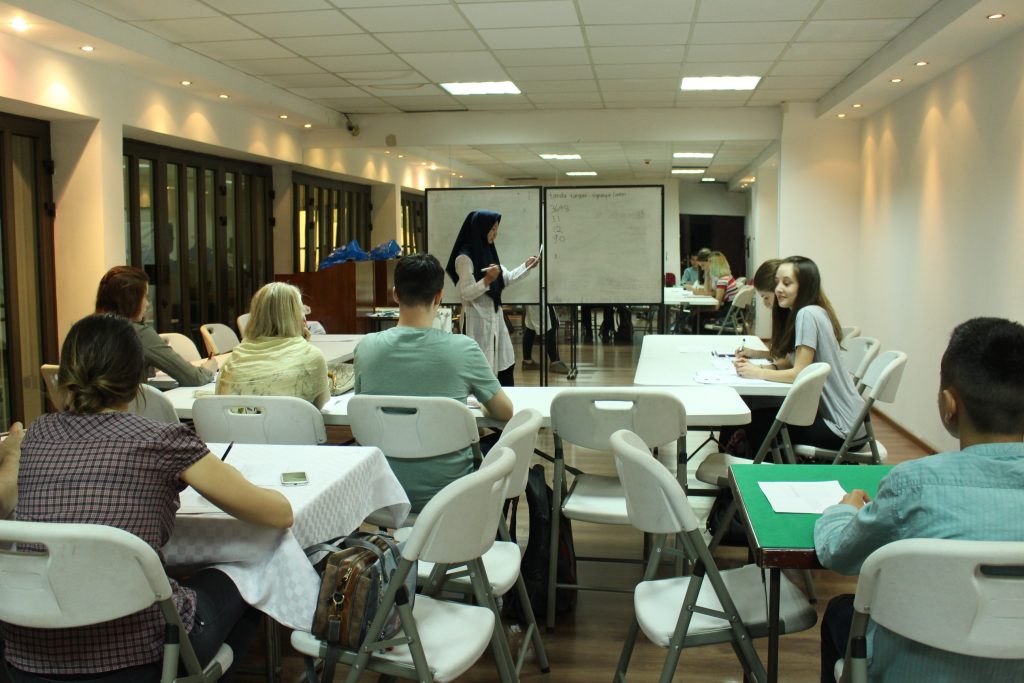
Teaching Indonesian Language in Serbia
Note to myself as well as others to be a date palm tree wherever we are and embrace all challenges and downfalls albeit we need to crawl. Moreover, we should be thankful for all the things that made us fall then rise and fall again. At the end, all the processes continue to run as a wheel to shape and strengthen ourselves mentally, intellectually and spiritually. Another lesson from simply leaving legacy in the world is by learning from many people, including learning to appreciate the uniqueness and work of others. Learn to listen more than talk, and what I believe in from the principle of an influential Indonesian businessman – Bob Sadino-: Firstly, empty your “glass” when you meet and talk to others. By emptying our glass, we could open our own horizons by listening to and delving into the characteristics of each person. More than that, the empty glass we have, will absorb and grasp more wisdom, the virtues of others that we might have assumed wrongly. Emptying our own glass means that we are ready to accept every life lesson that is far more valuable than what we get in theory. Last but not least, despite having covered by various trivial things, diamonds will always remain diamonds. I feel proud knowing these diamonds and that they should be more appreciated and deserve more spotlight.
*Sabriana Jayaputri is an Indonesian student in Serbia who studies at the Faculty of Security in the University of Belgrade.

